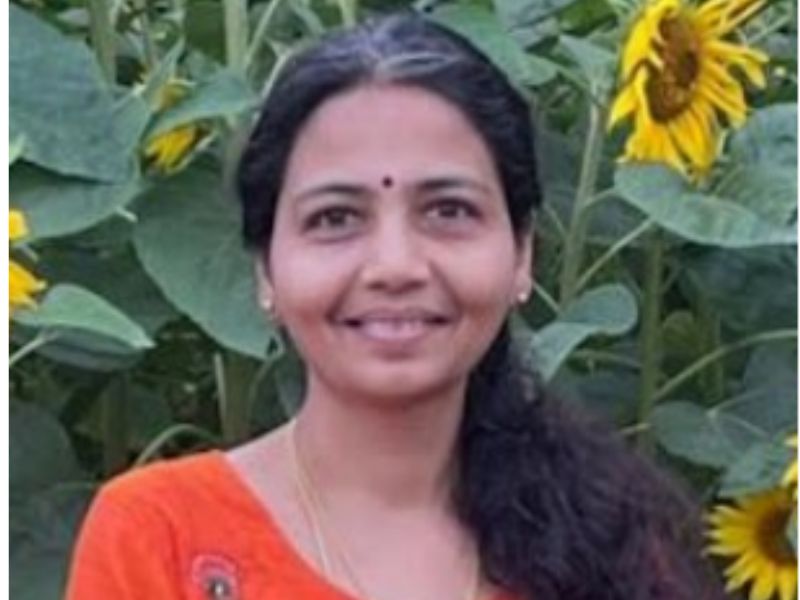No products in the cart.
Revitalizing Indian education system with ancient wisdom: A holistic approach to learning
 By – Haripriya Vasudevan, Bengaluru based educator, writer and researcher
By – Haripriya Vasudevan, Bengaluru based educator, writer and researcher
The Indian education system, while making significant strides in modern times, particularly through progressive schools like Riverside, has the potential to achieve even greater heights. Institutions such as Riverside, which emphasize Empathy, Ethics, Excellence, Elevation and Evolution, are preparing children to become change-makers with a societal impact. However, for the entire Education system as such to become truly robust and impactful, integrating the ancient Indian knowledge system (IKS) into our educational foundation is crucial. The recent National Education Policy (NEP) 2020 mandates the implementation of IKS in schools, a move that, although taking time to resonate widely, promises a holistic change starting from the grassroots level of education.
The Legacy and Structure of Indian Knowledge Systems
The NEP 2020 recognizes the rich heritage of ancient and eternal Indian knowledge and thought as a guiding principle. Indian Knowledge Systems encompass Jnan, Vignan, and Jeevan Darshan, which have evolved through experience, observation, experimentation, and rigorous analysis. This tradition of validating and putting knowledge into practice has historically impacted various fields, including education, arts, administration, law, justice, health, manufacturing, and commerce. Indian knowledge has been transmitted through textual, oral, and artistic traditions, influencing classical and other languages of Bharat. “Knowledge of India” thus includes ancient Indian successes and challenges, and offers insights into India’s future aspirations in education, health, environment, and all aspects of life.
In Indian philosophy, knowledge is closely connected to the three terms: darshana, jnana, and vidya. Darshana, or philosophy, represents the system or point of view that leads to jnana, knowledge. When knowledge about a particular domain is organized and systematized for reflection and pedagogy, it becomes vidya, or discipline. Indian educational tradition, primarily oral, emphasized that knowledge should be stored in the mind, facilitating memorization and oral transmission through the guru-shishya (teacher-student) mode.
Over time, knowledge in various domains has been institutionalized into numerous disciplines (vidya) and crafts (kala). These include diverse fields such as philosophy, architecture, grammar, mathematics, astronomy, sociology, economics, ethics, geography, logic, military science, agriculture, trade, metallurgy, shipbuilding, medicine, poetics, biology, and veterinary science. Despite historical losses, a continuous and cumulative series of texts remains available, reflecting uninterrupted reflection on the nature and character of knowledge in Indian tradition.
The NEP 2020 and Integration of IKS
The National Education Policy 2020 emphasizes the inclusion of IKS into curriculums at all levels of education. The National Credit Framework (NCF) has made it possible for students to earn credits in courses related to ancient Indian sciences and arts. Recognizing this heritage, the NEP highlights the need for interdisciplinary research and dissemination of IKS for societal applications.
The Indian Knowledge System (IKS) Division, established under the Ministry of Education (MoE) at AICTE, New Delhi, promotes IKS through various initiatives. These include facilitating interdisciplinary research, preserving traditional knowledge, and promoting its application across arts, literature, agriculture, sciences, engineering, technology, architecture, management, and economics. The Division also funds IKS centers in educational institutes, providing financial support to establish centers and conduct related activities. Furthermore, the IKS Internship Programme pairs students with experts to work on short research projects, providing practical experience and financial support.
While significant progress has been made in higher education institutions (HEIs), with over 8,000 HEIs incorporating IKS into their curricula, it is crucial to extend this integration to primary and middle-level education. Introducing IKS at an earlier stage will have a profound impact, as children will connect with ancient value systems during their formative years. The sooner this implementation occurs, the faster and greater the impact on students and society as a whole.
IKS aims to integrate seamlessly with contemporary knowledge rather than being preserved as a separate compartment of learning. This integration involves incorporating core IKS ideas into modern textbooks, developing Indian thought models based on IKS literature, and applying these models to modern problem-solving techniques. The process emphasizes the use of Indian languages, as translating core ideas into English often loses their essence. Balancing IKS with Indian language education is crucial for fostering high-quality research and promoting harmonious economic growth.
A Path Forward for Holistic Education
IKS fundamentally teaches how to ask questions, guiding our way of thinking through fundamental sutras. Axiomatic beliefs such as “Vasudhaiva Kutumbakam” (the entire universe is a family) and “Sarve Bhavantu Sukhinah” (may all be happy) form the foundation of IKS’s worldview. Revival and reinforcement of IKS aim to integrate it with contemporary knowledge, shifting the focus from preservation to utilization. This approach will help India serve as a hub of emerging knowledge for the world.
Implementing IKS in Indian schools is an ongoing process, with significant strides made in curriculum development, teacher training, and creating practical learning opportunities. The Ministry of Education collaborates with state governments and educational boards to ensure widespread adoption of IKS. Digital platforms like SWAYAM and NPTEL deliver IKS courses online, and regional courses reflect the native cultures, traditions, and languages of different states, ensuring localized and relevant IKS education.
The integration of Indian Knowledge Systems into the Indian education system, as guided by the NEP 2020, holds the promise of a holistic, enriched learning experience. By blending ancient wisdom with modern educational practices, we can create a system that not only preserves our rich heritage but also prepares our children to be informed, innovative, and empathetic global citizens.















Add comment